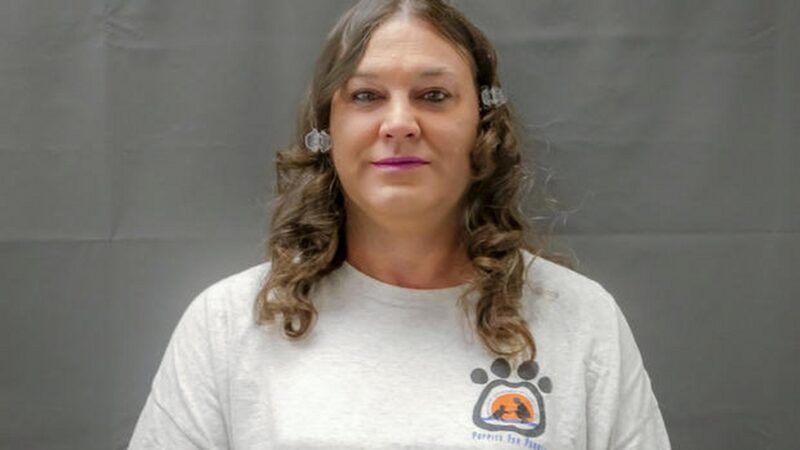Amber McLaughlin's Jury Deadlocked—So the Judge Decided She Should Be Executed
Today's scheduled execution is getting attention because she's trans. But the bigger story here is how she was sentenced to die.

The first execution of 2023 in the United States may also end up being the first execution of a trans inmate, but the media emphasis on Amber McLaughlin's identity obscures a more serious issue of how the state of Missouri sometimes allows judges to overrule juries in sentencing.
Today, Missouri plans to execute McLaughlin, 49, for killing her ex-girlfriend, Beverly Guenther, in St. Louis County in 2003. She was convicted under her birth name (Scott) and started her transition in prison three years ago, and as such she is believed to be the first transgender prisoner to face execution (according to the Death Penalty Information Center, DPIC). As such, McLaughlin's LGBT identity and the prison image of her in pigtails is getting a lot of attention.
But this obsession with identity shouldn't come at the expense of a serious flaw in McLaughlin's sentencing. When McLaughlin was convicted and sentenced in 2006, the jury deadlocked on whether to sentence her to death. They rejected three out of four aggravating circumstances that would allow for a capital sentence, but couldn't decide on the fourth. In states that still have the death penalty and in federal sentencing trials, a hung jury means that the defendant is sentenced to life in prison. Four states (California, Nevada, Arizona, and Kentucky) call for a retrial of the penalty phase under a new jury.
Missouri and Indiana are the only two states that give the judge hearing the trial the authority to make the decision. And so, ultimately, McLaughlin was not sentenced to death by a jury, but by a single judge. DPIC notes, "McLaughlin's trial judge then relied upon the aggravating circumstances rejected by the jury to sentence McLaughlin to death."
In 2016 a federal district court overruled the death sentence, determining that her defense hadn't adequately presented her mental health history showing physical and sexual abuse, brain damage, and multiple suicide attempts. But that decision was subsequently overruled by the U.S. Court of Appeals for the 8th Circuit, and the Supreme Court declined to hear the case.
McLaughlin's trans identity is a sideshow. Many news stories are, fortunately, also describing the circumstances that she ended up on death row in the first place. In December, seven retired Missouri judges (led by former state Supreme Court Justice Michael A. Wolff) sent a letter to Missouri Gov. Mike Parson asking for him to consider commuting her sentence. They argued not on the basis of McLaughlin's identity or upbringing (in fact, the letter refers to McLaughlin by male pronouns throughout) but because of the deep concern that McLaughlin's fate was determined by a single judge and not a jury. They see this as a flaw in Missouri's sentencing system:
This flaw is more pronounced in this case because the trial judge then relied upon aggravating circumstances specifically rejected by the jury. Thus, the trial judge made his own findings contrary to the will of the jury, which runs squarely against the fundamental principles of our justice system. The trial judge did a complete end-run around a jury, where Mr. McLaughlin's attorneys had persuaded at least one and maybe 11 jurors that death was not appropriate.
If Parson rejects mercy for McLaughlin and she is executed today, some superficial press coverage may focus on her gender identity. Don't let the fact that she is trans distract from the issue that her death sentence was imposed by a judge who overruled the jury.
UPDATE: Parson rejected McLaughlin's request to commute her sentence, and this evening she was executed via lethal injection.

Show Comments (172)